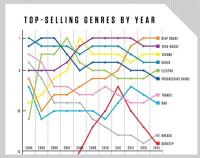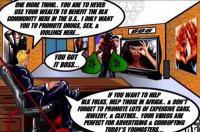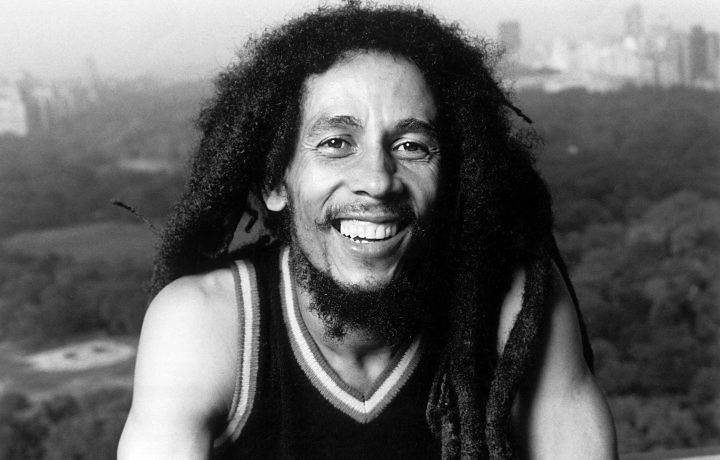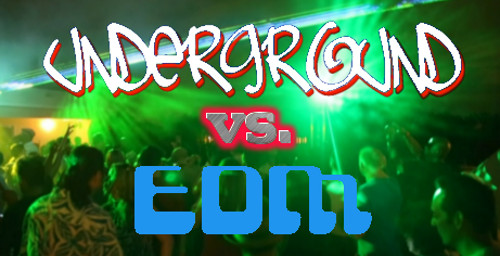
EDM Versus Underground Debate. Worthwhile Discussion? You Bet! (Op-Ed)
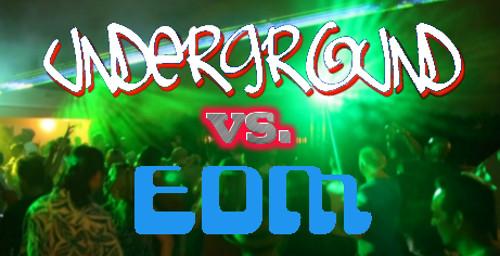
Matt Medved recently wrote an Op-ed piece in Billboard Magazine calling for an end to the hate between the EDM and Underground scenes. His piece begins with the premise that artist beefs are not newsworthy. Millions of music fans disagree. The passion displayed by artists and their fans strongly suggests these beefs are part of what constitutes news today when private conversations spark controversy and elevator spats send the world into a tizzy for weeks. I agree with Carl Cox; the battle isn’t really EDM vs. Underground, rather it is pop culture versus music lovers. The hostility that exists between the camps is part aesthetic, part economic and part cultural. While the proverbial genie is out of the bottle, the fight for dj culture will rage for some time. Just because anyone can be a dj does not mean everyone should try. “DJs” may identify with the art while “Artists” are more concerned with exposure rather than old school rules. To be fair, any generalization is doomed to failure and this debate is a prime example.
Medved argues that the underground is full of posturing artists but I contend that the underground does not tolerate that behavior. Most self described underground djs reject hijinks and pandering to the crowd. There are some phony underground djs for sure but dj/club culture does not reward or celebrate all that “extra” stuff. Part of this argument is over what is “cool” and what is “corny and unoriginal”. You can’t really legislate taste. EDM is not pretending to be original and I have no idea why EDM artists care when they get called out by underground artists for their buffoonery. I have just as much right to disrespect cake throwers as anyone else has to love them. Steve Aoki is not being judged for his ability to read a crowd or for transcendent mixing skills. However, you can’t blame artists who possess those skills from dissing those they believe do not. In what field is this not the modus operandi?? As reality tv points out on a regular basis, image usually wins out over substance. EDM is winning the war of hearts and minds in pop culture hands down.
| If the consuming public cared about dj skills then Louie Vega would make ten times what Martin Garrix makes. |
The economic slant of this debate is two-fold. The most talented “djs” may not make the most money because the demand is for entertainment, not something as subjective as skill. Simple as that; kids just want to have fun. If the consuming public cared about dj skills then Louie Vega would make ten times what Martin Garrix makes. That is not the world we live in; as Medved suggests mixing and programming skills are irrelevant to a large segment of the EDM world. Underground artists are frustrated by this phenomena, but it also applies to every genre of music imaginable. The whole ghost writing hype exacerbates the enmity. Many EDM artists are too busy touring and simply do not have the time to supply the world with a steady stream of stadium bangers, so they use their newfound riches to pay ghost producers. Nobody blames singers for not writing their own songs, but at least songwriters get credit. I don’t think EDM artists are the only ones doing this but they are exploiting it the best. This is not so good for their carefully manicured images but the mainstream may not care. While dj culture frowns upon this, there are those in the EDM scene who have flipped this argument around to try to belittle djs who make a living off playing other people’s music. I thought that is what a dj does?

The last, and least discussed, element of this discussion is the colonialism aspect. The idea that interlopers came into a market, diluted the product (converted the natives to Christianity) and heralded the change in culture as progress. This strikes a sour note with those who feel that EDM has bastardized dj culture at the expense of those who created it. Much like the rock & roll that was alluded to in Medved’s piece, some music historians connect the dots with how Elvis Presley and The Beatles stole the style and music of old blues players and made it over into pop music. R&B was called “race music” so it couldn’t be sold to the masses. House music has it’s roots in gospel, disco and gay clubs, so is it fair to say EDM was invented to sell “house” to Tucson? EDM used to mean music like Nitzer Ebb, Robert Gorl and Depeche Mode. Incorrect or not, there is a feeling in the underground that there may be a culture/class based agenda in the rise of EDM when the genesis of the scene is house music. Radio has been reticent to support house since the mid 1980’s. It is hard to understand how readily EDM was accepted into the mainstream when dancefloor based music has been denied air wave access in the main for decades. At the end of the day everyone wants to get paid; perhaps the beef exists in some part due to jealousy and in part due the artistic differences. I think the debate is healthy and you are free to choose sides or not. EDM may be class warfare or just corporations corrupting another facet of our entertainment.

